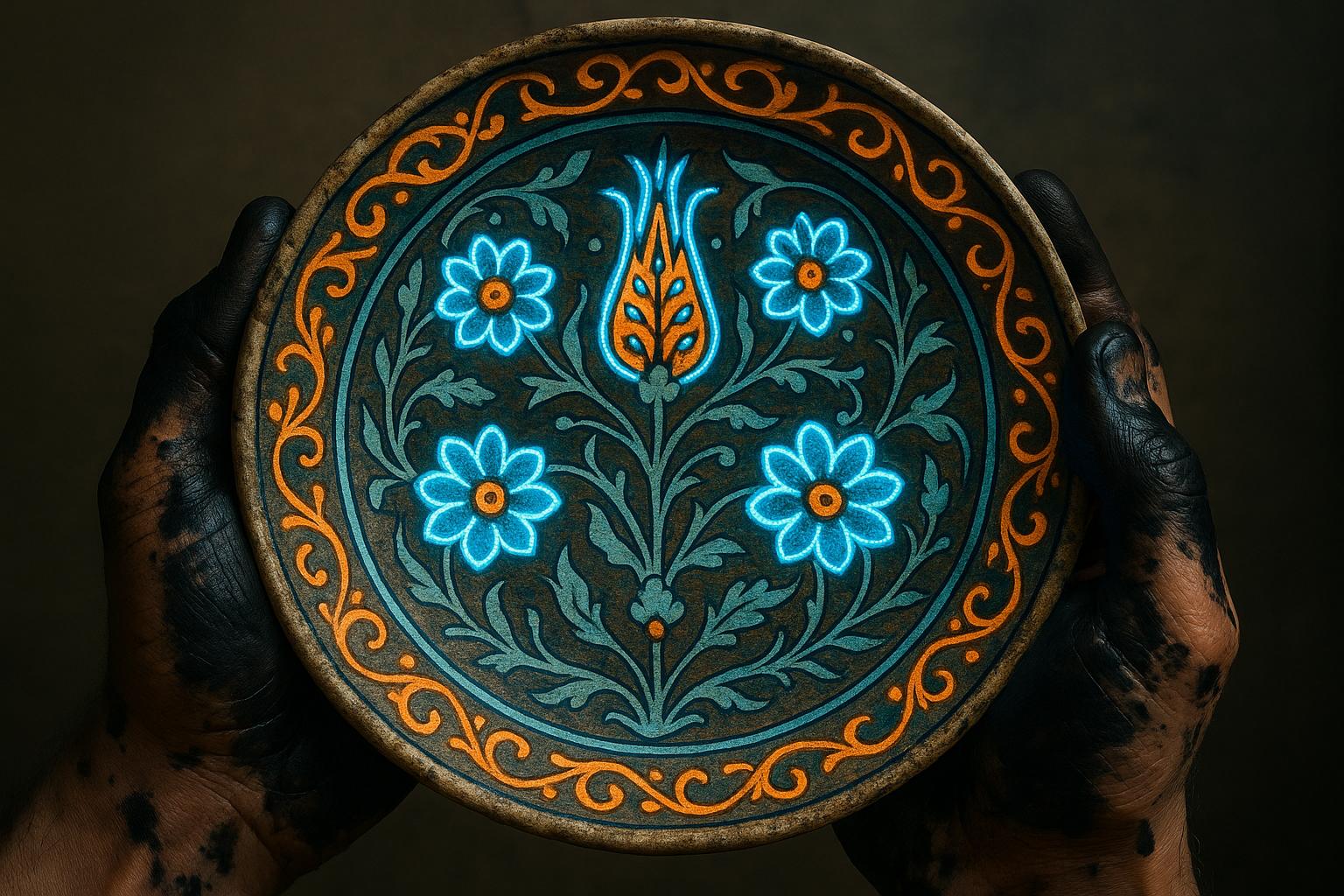Among the latest projects emerging from the University of the Arts London Chelsea College of Arts is a thoughtful redesign of the traditional Turkish dining table, the sini, aimed at reviving communal eating and cultural connection within contemporary urban settings. This project highlights a deep cultural heritage where such floor-level, circular copper tables fostered gatherings that were more than just meals—they were ceremonies of community and belonging. The designer behind this reinterpretation seeks to bring these social and cultural values back into the streets of London, inviting both the Turkish diaspora and local communities to reconnect and celebrate food as a shared experience once again.
Chelsea College of Arts is widely recognised for nurturing leading artists and designers who engage with their work in a rich socio-political and cultural framework, reflecting the diverse and global outlook the institution promotes. The college’s philosophy encourages students to explore not only creative practice but also the broader implications of globalisation, art, and design in contemporary society. This contextual awareness is exemplified by a variety of student projects showcased alongside the Turkish table redesign, all demonstrating innovative approaches to design and art that blend tradition with modernity.
Other stand-out projects include an immersive textile installation exploring human obsession, a textile collection inspired by patterns found in nature, and the use of advanced LED lighting to combat Seasonal Affective Disorder by simulating natural sunlight. These creative endeavours reflect a commitment to both material innovation and addressing real-world concerns through design. For instance, one project combines the aesthetics of nature with functional full-spectrum LED lighting to enhance wellbeing during the UK's low-light winter months, creating a sensory experience that evokes the warmth and vitality of a sunny day.
In addition to textile and product design, the college offers a broad spectrum of courses encompassing fine art, graphic design communication, interior design, and curating, with programmes spanning undergraduate to postgraduate levels and specialised research degrees. These courses aim to equip students with both practical skills and critical thinking abilities, enabling them to challenge conventions and push the boundaries of their disciplines. The college also hosts research centres that emphasise transnational art, identity, and decolonisation, fostering a fertile environment for global dialogue and innovation.
Projects like the ethical and environmentally conscious leatherwork chair, which uses traceable British Pasture Leather to highlight regenerative farming practices, further showcase the blend of craftsmanship, sustainability, and storytelling pursued at Chelsea. This approach restores provenance to materials often overlooked in contemporary production, reconnecting them to their origins and the people behind them.
Overall, the projects presented by the University of the Arts London Chelsea College of Arts encapsulate a vibrant mix of cultural reverence, social engagement, innovative craftsmanship, and wellbeing-focused design. This reflects the college's enduring reputation for cultivating creatives who not only produce compelling work but also engage deeply with the ethical, social, and environmental challenges of our times.
📌 Reference Map:
- Paragraph 1 – [1]
- Paragraph 2 – [1], [2]
- Paragraph 3 – [1]
- Paragraph 4 – [2], [3], [4], [5], [6]
- Paragraph 5 – [1]
- Paragraph 6 – [1], [2]
Source: Noah Wire Services
